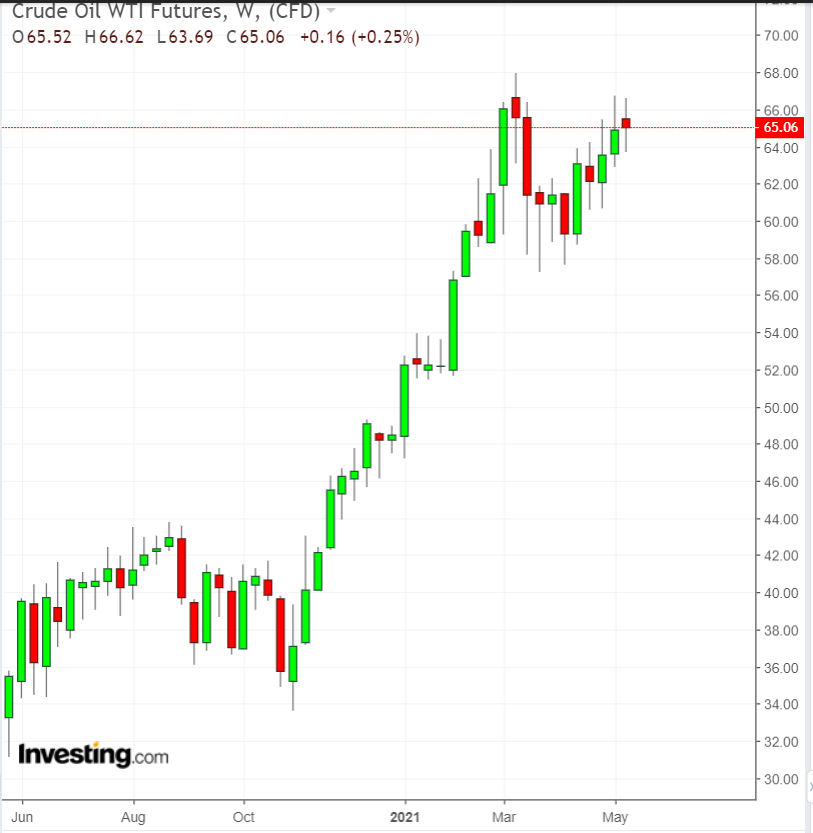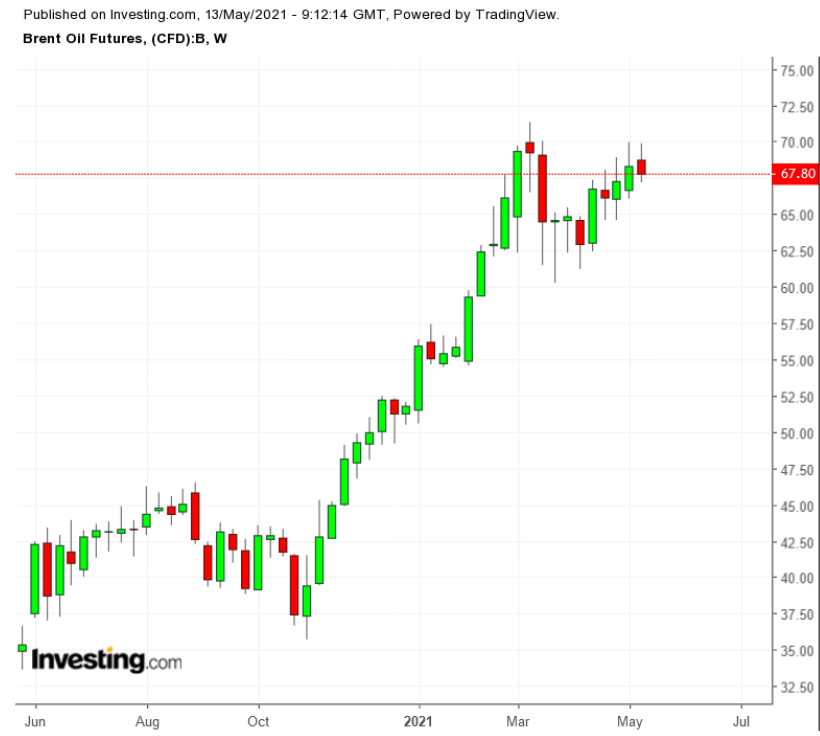Last Friday, the Colonial Pipeline fell victim to a major cyber attack that shut down the 5,500 mile pipeline running from Houston, Texas to New Jersey. The pipeline is the main conduit on the east coast of the United States for oil products, such as gasoline, jet fuel and diesel which typically transports 2.5 million barrels of petroleum products per day—45% of the fuel consumed on the east coast.
Some offshoot pipelines have been restored, although the four primary lines remained offline through Wednesday. The Colonial Pipeline Company announced on Wednesday evening that it would begin a phased restart of the pipeline beginning Wednesday at 5:00 pm, despite not paying the ransom for its stolen and encrypted data.
Here’s a look at the expected impact of the outage on the supply and price of products as well as on the price of crude oil:

Gasoline Shortages, Price Hikes...And Panic
Major U.S. metropolitan areas that depend on the Colonial Pipeline for gasoline are now experiencing shortages of gasoline; these include Atlanta, Georgia; Charlotte, North Carolina; Raleigh-Durham, North Carolina; Tallahassee, Florida; and Pensacola, Florida.
In addition, gasoline prices have increased all across the east coast of the United States—even in areas not serviced by the Colonial Pipeline. This has pushed the national average for gasoline up to $3.01 per gallon, the first time since 2014 that the average national price has risen above $3 per gallon. At that time, the price of WTI was at least $15 more per barrel than it was yesterday.
The issues creating the current gasoline price spike are transportation and fear.
Market watchers should understand that there isn’t really a shortage of gasoline, but rather a supply crunch in these particular areas.
Consumers rushed out to buy gasoline when they ordinarily wouldn’t. The stations ran out of gasoline sooner than they would have had consumers not panicked, because there aren’t enough truck drivers to transport gasoline from regional tank farms to gasoline stations.
According to several forecasts, the national average gasoline price was expected to hit $3 per gallon this summer as demand increases for summer travel.
So, the question is: will the price come back down when the pipeline restarts and then return higher as the summer driving season commences? Or will the price hike from this pipeline incident simply bleed right into the summer driving season, which officially commences on Memorial Day weekend (May 22-May 24)?
Since it will take about two weeks for products to traverse the pipeline, it seems likely that gasoline prices will probably remain elevated as the U.S. heads into the summer driving season.
Crude Oil Price Holds Steady, For Now
Crude oil hasn’t been significantly impacted by the Colonial Pipeline cyber attack. Prices rose somewhat this week, though Brent remained just below the $70 per barrel mark and WTI is a little below Brent.

It is more likely that prices rose recently in reaction to a new crude oil demand forecast from OPEC, which predicts that an additional 200,000 bpd of oil will be consumed this year.
However, we could start to see some issues for crude oil in the United States as a result of the pipeline outage.
Many refineries along the Gulf coast are expecting to cut output because they typically send products directly into the Colonial Pipeline and don’t have storage capacity to accommodate the buildup of gasoline, jet fuel and diesel.
Refineries in Port Arthur, Texas and Louisiana would bear the brunt of the cuts as refineries farther west have the option of sending products up to the Midwest. So far, the region has cut 13% of its 4.7 million bpd capacity and could cut up to 15%.
Keep in mind that at this time, refineries are typically producing at maximum capacity to prepare for increased demand during the summer months.
Traders should expect to see these cuts reflected in next week’s EIA weekly petroleum status report as well as the following week’s report.
The decreased capacity translates to decreased crude oil demand. In addition, because refineries are cutting back on production, we could see a larger than expected build in crude oil stocks in the U.S. for the next week or two.
When news of the Colonial Pipeline shutdown first broke, 2 million barrels of petroleum products were expected to be put into floating storage in the Gulf of Mexico, though it seems that interest in this is now dropping off.
One of four tankers that had been chartered for this purpose has been cancelled, as it appears the expected overflow of products will be held onshore for now.
Traders will have to keep a close eye on developments for U.S. product transportation and demand at the refinery end. No one truly knows when the matter will be resolved, because the problem is unprecedented for the country.
Right now, issues related to this shutdown are the big questions overhanging the U.S. industry.
